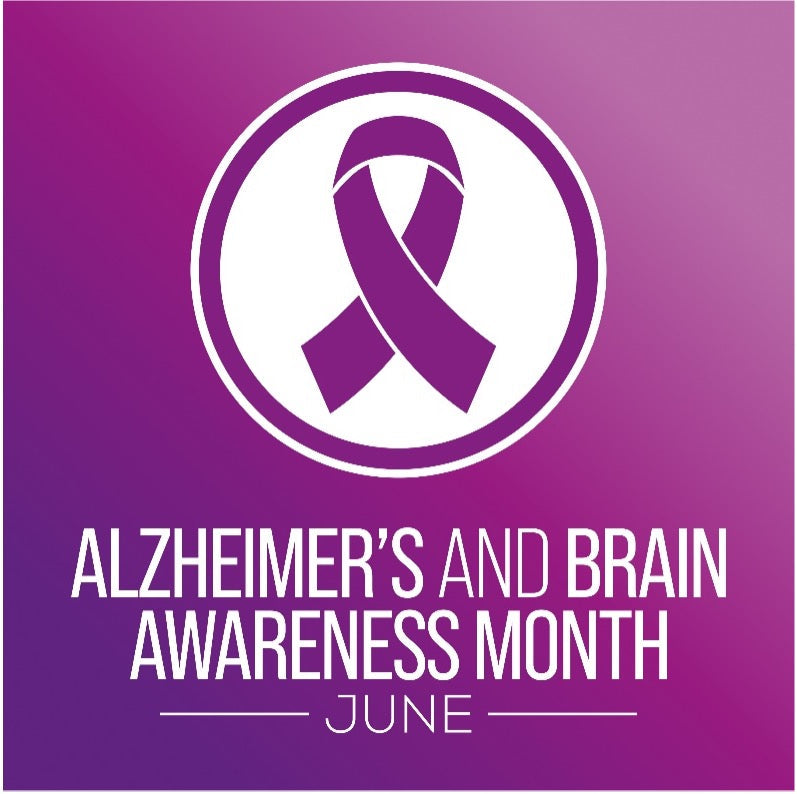June is Alzheimer's & Brain Awareness Month—a time to spotlight the importance of brain health and support individuals facing cognitive challenges. While this month brings attention to Alzheimer's disease, it's also a timely reminder that changes in memory and thinking can start well before a diagnosis of dementia.
Cognitive changes may begin subtly. Perhaps your mom—always the sharp one in the family—starts forgetting the name of a neighbor she's known for years. At first, you both laugh it off as a another part of aging, a brief moment of forgetfulness. But over time, those slips might become more frequent, like missing appointments or having trouble following conversations.
These signs may point to a condition known as mild cognitive impairment (MCI). MCI involves measurable changes in memory or thinking that go beyond normal aging, but don't yet interfere significantly with daily life. The good news? There are actions you can take to support brain health and potentially slow progression.
Signs of MCI1,2
Early signs of MCI may include:
- Struggling to remember names
- Forgetting to go to events and appointments
- Misplacing things more than usual
- Having trouble coming up with words more than other people your age
- Losing your train of thought or the thread of a conversation
- Finding it hard to make decisions or follow instructions
- Getting lost in familiar surroundings
Common Causes of MCI
Elevated Homocysteine Levels
Homocysteine (sounds like homo-sis-teen) might sound complex, but it's just a substance your body makes naturally. When levels rise, they've been linked to changes in memory and brain function. This can happen for a number of reasons — including poor nutrition, certain medications, ongoing stress, and even aging. The encouraging part? With the right support, homocysteine levels can be kept in a healthier range over time.
Oxidative stress
Think of oxidative stress like the brain's version of wear and tear. As we age, our brain works hard — and that effort can lead to the buildup of things called free radicals, which can damage brain cells over time. Lifestyle habits like quality sleep, a balanced diet, and regular movement can all help protect the brain and keep this in check.
How Targeted Nutrition Supports Brain Health in MCI
If you or someone you love is experiencing mild cognitive impairment, certain nutrients may help support memory, focus, and overall brain health — especially when paired with healthy habits like sleep, diet, and mental activity.
Cerefolin Brain Wellness™ is dual-action targeted nutrition designed for people with MCI. It provides bioactive forms of key nutrients that help reduce elevated homocysteine and protect against oxidative stress — two factors linked to memory changes and long-term brain health. It is intended to be used under the supervision of a healthcare provider.
It contains three key nutrients:
- L-Methylfolate Calcium - supports memory-related neurotransmitters and helps regulate homocysteine.3
- Vitamin B12 (Methylcobalamin) - supports brain energy and nerve health.4
- N-Acetyl-l-cysteine (NAC) - an antioxidant that helps protect brain cells from stress.5
Take Time to Take Charge of Your Brain Health
This June, let Alzheimer's & Brain Awareness Month be a reminder to take your brain health seriously. Whether you're noticing changes in yourself or someone close to you, don't ignore the early signs.
Talk to a healthcare professional about potential risk factors, screening, and whether targeted nutrition or lifestyle changes could help.
You deserve a mind as sharp and vital as you feel. Support your brain today for a better tomorrow.
Sources:
1. Mayo Clinic Staff. Mild cognitive impairment - symptoms and causes. Mayo Clinic. Published October 24, 2024. Accessed May 29, 2025. https://www.mayoclinic.org/diseases-conditions/mild-cognitive-impairment/symptoms-causes/syc-20354578
2. UCSF Health. Mild cognitive impairment. UCSF Health. https://www.ucsfhealth.org/conditions/mild-cognitive-impairment. Accessed May 29, 2025.
3. Shankle WR, et al. J Alzheimer's Dis. 2016 Oct 4;54(3):1073-1084
4. Chan A, et al. J Nutr Health Aging 2008;12(4):252-61.
5. N-acetylcysteine. Monograph. Alt Med Rev. 2000

